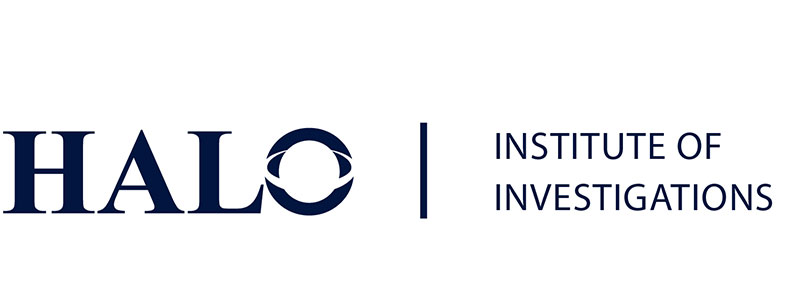ANTI-BRIBERY AND CORRUPTION Masterclass
Strengthen your organisation’s integrity
Anti-Bribery and Corruption Training
Designed for South African professionals.
To equip senior executives, board members, and compliance professionals with the knowledge, skills, and tools to identify, prevent, and manage bribery and corruption risks within their organisations. The course aims to foster ethical leadership, strengthen corporate governance, and ensure alignment with international anti-corruption standards and legal frameworks.
According to a World Bank estimate, corruption is pervasive, costing the global economy around $1 trillion annually. The estimated loss due to corruption in Europe amounts to €990 billion in Gross Domestic Product each year. South Africa has also faced significant losses, with billions lost due to State Capture.
The ramifications of bribery and corruption extend beyond financial losses, contributing to social inequality, increased organised crime, and eroding trust in public institutions.
The role of senior executives and C-suite leaders is critical in addressing financial, reputational, and regulatory risks associated with bribery and corruption. A vital element in combating bribery and corruption is the "tone at the top," which refers to the ethical climate and culture established by an organisation's leadership. Senior executives must commit to ethical behavior and transparency, setting a benchmark for the organisation.
To this end, we have developed a specialised training masterclass for senior leaders. This masterclass aims to equip participants with essential knowledge and practical tools to identify, prevent, and manage bribery and corruption risks within their organisations.
The significance of this training extends beyond mere legislative compliance; it encompasses corporate governance and aligns with best practices as emphasised by the King Report's stipulation that organisations must be led ethically and effectively. By implementing robust anti-bribery measures, organisations can enhance their integrity, ensure adherence to global standards, and foster a culture of ethical business practices.
By the end of this training, participants will be able to:
- Understand the global and local impact of bribery and corruption on economies, governance, and society.
- Interpret and apply key anti-corruption legislation, including PRECCA, FCPA, the UK Bribery Act, and FATF standards.
- Identify high-risk industries, geographic hotspots, and organisational vulnerabilities to bribery and corruption.
- Implement a risk-based approach to anti-bribery and corruption compliance, including tailored controls and dynamic risk assessments.
Additional Course Information
Module Content
Curriculum Overview
Overview
Introducing the global scope and consequences of bribery and corruption, laying the foundation for understanding the importance of ethical leadership and international cooperation.
- The global impact of bribery and corruption on economies, societies, and public service delivery.
- The actual cost of corruption – The Zondo Commission and State Capture
- International trends
- Legal definitions of bribery and corruption
- Money laundering – a consequence of concealing illicit funds, kickbacks, bribery, and corruption.
Legislative Framework and Reporting Duties
- Overview of South African and international legislation:
- Foreign Corrupt Practices Act, 1977
- Prevention and Combating of Corrupt Activities Act, 2004 (PRECCA)
- Financial Intelligence Centre Act, 2001
- United Kingdom Bribery Act, 2010
- Financial Action Task Force (FATF) guidelines
- Reporting duties under PRECCA and the FIC Act
- Penalties for non-compliance
High-Risk Areas
Identifying sectors, activities, and regions most vulnerable to bribery and corruption, helping participants recognise where enhanced controls are required.
- High-risk industries and activities
- Public Procurement: Bribery, bid rigging, collusion, and embezzlement.
- Healthcare: Bribery, overpricing, and fraud.
- Finance and Banking: Money laundering, tax evasion, and fraud.
- Mining and Extractives: Bribery for licences, environmental violations, and illicit payments.
- Defence and Security: Procurement fraud and bribery in arms deals.
- Energy and Utilities: Monopolistic structures, regulatory capture, and opaque contracts.
- Construction and Infrastructure: Kickbacks, inflated billing, and favouritism.
- Sports and Entertainment: Match-fixing, sponsorship deals, and event hosting.
- Interactions with Government Officials: Bribery in exchange for favourable decisions or access.
- Obtaining Licences and Permits: Bribes to expedite or secure regulatory approvals.
Risk-Based Approach to Managing Bribery and Corruption Risk
Principles and practices of a risk-based approach, emphasising proportionality, prioritisation, and evidence-based decision-making.
- Purpose of a risk-based approach:
- Alignment with international standards (FATF, OECD, International organisation for Standardisation (ISO))
- Compliance with legal requirements (UK Bribery Act, FCPA, PRECCA)
- Enhancement of corporate governance and ethical culture
- Demonstration of a proactive and defensible compliance posture
- Best practices:
- Proportionality
- Prioritisation
- Dynamic Risk Assessment
- Tailored Controls
- Evidence-Based Decision Making
- Risk assessments and risk registers
Roles and Responsibilities
Key roles and responsibilities across the organisation in implementing and sustaining an effective ABC programme.
- Board of Directors – Provides strategic oversight and ensures that anti-bribery and corruption risks are addressed at the highest level.
- Senior Management – Sets the ethical tone, allocates resources, and leads the implementation of ABC policies and procedures.
- Internal Audit / Combined Assurance – Evaluates the effectiveness of internal controls and ensures that ABC risks are adequately monitored and reported.
- Governance, Risk and Compliance (GRC) – Develops and enforces compliance frameworks, conducts risk assessments, and monitors adherence to ABC standards.
- Company Secretariat – Supports governance processes, ensures regulatory filings, and facilitates communication between the board and management.
- Legal – Provides legal advice, ensures compliance with applicable laws, and manages investigations and reporting of suspected violations.
Elements of an Effective ABC Programme
The core components of a comprehensive anti-bribery and corruption programme, from governance to monitoring.
- Governance and Leadership - Clear roles and responsibilities, strong tone from the top (executive and board-level support), integration with corporate strategy and culture.
- Risk Identification - Systematic identification of internal and external risks, use of tools like SWOT analysis, risk registers, and scenario planning.
- Risk Assessment and Prioritisation. Prioritisation - Evaluation of risks based on likelihood and impact, use of qualitative and quantitative methods (e.g., heat maps, risk matrices).
- Risk Mitigation and Controls - Develop action plans to reduce or eliminate risks and implement internal controls, policies, and procedures.
- Monitoring and Reporting - Continuous tracking of risk indicators, control effectiveness, and regular reporting to stakeholders and leadership.
- Communication and Training - Ongoing education for staff on risk awareness and responsibilities, and clear communication channels for reporting and escalation.
- Compliance and Legal Considerations - Alignment with laws, regulations, and industry standards, as well as regular audits and compliance checks.
- Technology and Tools - Use of risk management software and data analytics, as well as automation of risk tracking and reporting where possible.
- Incident Response and Recovery - Crisis management, post-incident reviews and lessons learned.
- Continuous Improvement - Regular reviews and updates to the risk management framework, feedback loops and benchmarking against best practices.
Minimum Requirements:
- Proficiency in English (language of instruction)
- 6 years industry experience
- Professional background in compliance, risk, law or governance
- No legal qualification required – practical and accessible for all relevant roles
Who should apply:
- Directors
- C-suite Executives
- Senior Managers on the Promotional Track for C-level Roles
- Senior Legal, Risk and Compliance Professionals
Learn with the best

Professor

Senior lecturer

Forensic Legal Specialist

Partnership
This masterclass is delivered by UCT GSB Executive Education in collaboration with the HALO Institute of Investigations – a specialist tax consultancy that partners with clients to legitimately regularise tax affairs and resolve complex compliance challenges, from customs and excise issues to bilateral tax conventions.
FAQ
10% Groups of 2 or more
15% Alumni of UCT, GSB Academic and Executive Education programmes (proof required)
25% NPO/NPC (proof required)
5% Specific events for the masterclass
The UCT GSB's Breakwater Campus is situated in the heart of Cape Town's most popular tourist attraction, the Victoria and Alfred Waterfront. Centrally located and easily accessed, the UCT GSB is just 1.5km away from the central business district and 20 minutes from Cape Town International Airport.
As an added benefit to studying at the UCT GSB, you'll be situated in one of the most beautiful cities in the world.
Certificate of attendance
Flights accommodation, breakfast and dinner costs are not included.
The masterclass is a non-credit-bearing session designed and delivered at the equivalent of an NQF 8 postgraduate level of study.
Lead with Integrity
Join our exclusive One-Day Anti-Bribery and Corruption (ABC) Training, designed for South Africa’s senior executives, board members, and compliance leaders.
Related Courses

International Executive Development Programme

Executive Development Programme

